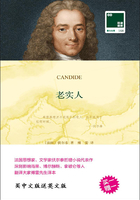"What," said he, "makes the difference between man and all the rest of the animal creation? Every beast that strays beside me has the same corporal necessities with myself, he is hungry, and crops the grass, he is thirsty, and drinks the stream, his thirst and hunger are appeased, he is satisfied and sleeps; he rises again and he is hungry, he is again fed and is at rest. I am hungry and thirsty like him, but when thirst and hunger cease I am not at rest; I am, like him, pained with want, but am not, like him, satisfied with fullness. The intermediate hours are tedious and gloomy; I long again to be hungry that I may again quicken my attention. The birds peck the berries or the corn, and fly away to the groves where they sit in seeming happiness on the branches, and waste their lives in tuning one unvaried series of sounds. I likewise can call the lutanist and the singer, but the sounds that pleased me yesterday weary me today, and will grow yet more wearisome tomorrow. I can discover within me no power of perception which is not glutted with its proper pleasure, yet I do not feel myself delighted. Man has surely some latent sense for which this place affords no gratification, or he has some desires distinct from sense which must be satisfied before he can be happy."
他说:“人和其他动物的区别在哪里?在我身旁游走的每个野兽,和我一样都有肉体上的需要:饿了吃草,渴了喝溪水,充饥解渴后将满足地睡去;醒来又饿了,再吃饱休息。我和他一样也会饥渴,但不渴也不饿时,我不休息;我也像他一样因需求匮乏而痛苦,但不像他因需求丰裕而满足。中间这个阶段,冗长而又乏味;我又开始渴望饥饿,好再次加速自己的注意。鸟儿啄食着浆果或谷物,好像非常快乐地飞到树丛中,停靠在树枝上,并且百无聊赖地吟唱着一成不变的曲调。同样地,我也能叫来琵琶手和歌手,但昨天还能使我愉悦的乐章,今天却令我厌烦,明天变得更令人厌倦。我从自身发现,没有一种感受力不是被适度愉悦充满的,但是我不觉得自己快乐。确实,人类有某种潜在的感觉,会告知自己这个地方不能令人愉悦,或者,在快乐之前,他有一些有别于感觉的渴望,必须先得到满足。”
生命
Life
à尔夫·沃尔多·爱默生 / Ralph Waldo Emerson
à尔夫·沃尔多·爱默生(1803—1882),美国思想家、诗人和散文家。生于波士顿牧师家庭,毕业于波士顿à丁学校和哈佛大学。21岁时成为神职人员,不久便对基督教产生怀疑,1832年辞职远游,遍访欧洲文化名人。曾深入研究过荷马、柏à图、但丁、蒙田和莎士比亚。代表作有《论自然》、《美国学者》、《神学院致辞》、《散文选》和《诗集》等。
Life will be imaged, but cannot be divided nor doubled. Any invasion of its unity would be chaos. The soul is not twin-born, but the only begotten, and though revealing itself as child in time, child in appearance, is of a fatal and universal power, admitting no co-life. Every day, every act betrays the ill-concealed deity. We believe in ourselves, as we do not believe in others. We permit all things to ourselves, and that which we call sin in others, is experiment for us. It is an instance of our faith in ourselves, that men never speak of crime as lightly as they think, or, every man thinks a latitude safe for himself, which is nowise to be indulged to another.
The act looks very differently on the inside, and on the outside; in its quality, and its consequences. Murder in the murderer is no such ruinous thought as poets and romancers will have it; it does not unsettle him, or fright him from his ordinary notice of trifles: it is an act quite easy to be contemplated, but in its sequel, it turns out to be a horrible jangle and confounding all relations. Especially the crimes that spring from love, seem right and fair from the actor' s point of view, but, when acted, are found destructive of society. No man at last believes that he can be lost, nor that the crime in him is as black as in the felon. Because the intellect qualifies in our own case the moral judgments. For there is no crime to the intellect. That is antinomian or hypernomian, and judges law as well as fact.
生命可以被想象,但是不能被割裂,也不能被复制。生命的整体一旦被破坏就会引起混乱。灵魂不是孪生儿,而是独生苗。虽然它早晚都要像婴儿那样被孕育成熟,长得也像婴儿,却有着一种无敌的力量能决定命运,不会接受同一个生命。生命有着一种唯我独尊的神圣,这种神圣无须掩盖,每一天都显露在人们的举手投足之中。我们对自己深信不疑,同时去怀疑他人。我们可以让自己为所欲为,但同样的事,别人做,我们称之为罪孽,我们只要自己来实验。我们充满自信的一个例子就是:人们从来不像他们想象的那样蔑视罪恶。换句话说,人人都为自己想好一个不受约束的自由,而这个自由是不能让别人来享用的。
行为从内在和外表,从性质和后果去看,各有不同。凶手行凶时所抱的意图绝不像诗人以及传奇作家所描述的那样伤天害理,通常人们也觉察不出他心神不宁或诚惶诚恐的蛛丝马迹。行凶一事并不难谋划,但去考虑后果的话,它却能愈演愈烈,发出一系列叮当作响的恐怖声,把一切的关联都破坏。尤其是爱情所激发的罪行,从施罪者的角度看,似乎一切都理所当然,但一旦发生毕竟贻害社会。然而,还是没有人会最终相信犯罪的人是迷失了自我,也没有人会认为那罪行如同重罪犯的所为那么恶不可赦。这是因为,就我们自身的情形而言,智力修正着道义判断,在智力的眼中,世上万事并无罪过。智力是反律法主义或超律法主义的,它判断着法律就像判断着事实一样。
阳光下的时光
Hours in the Sun
约翰·布莱德利 / John H.Bradley
约翰·布莱德利(1815£1870),19世纪美国著名的专栏作家、评论家、文学家,著有散文集《幸福时光》及新闻专著若干本。
"...I was rich, if not in money, in sunny hours and summer days."
——Henry David Thoreau
When Thoreau wrote that line, he was thinking of the Walden. Pond he knew as a boy.
Woodchoppers and the Iron Horse had not yet greatly damaged the beauty of its setting. A boy could go to the pond and lie on his back against the seat of a boat, lazily drifting from shore to shore while the loons dived and the swallows dipped around him. Thoreau loved to recall such sunny hours and summer days "when idleness was the most attractive and productive business."
I too was once a boy in love with a pond, rich in sunny hours and summer days. Sun and summer are still what they always were, but the boy and the pond changed. The boy, who is now a man, no longer finds much time for idle drifting. The pond has been annexed by a great city. The swamps where herons once hunted are now drained and filled with houses. The bay where water lilies quietly floated is now a harbor for motor boats. In short, everything that the boy loved no longer exists—except in the man' s memory of it.















